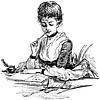Take a photo of a barcode or cover
dark
reflective
sad
slow-paced
Plot or Character Driven:
Character
Strong character development:
No
Loveable characters:
No
Diverse cast of characters:
No
Flaws of characters a main focus:
Yes
slow-paced
Kto znowu przejechał się na ładnej okładce i chwytliwym tytule i dlaczego jestem to ja?
There was something jarring about the experience of reading this novel - it did not feel stylistically consistent and thus, I was never able to fully immerse myself in it. The language was quirky, slightly pretentious, sometimes in a good way, sometimes not. This was a decent first book, but not a stunning debut. I look forward to seeing what else Mr. Thorton comes up with.
If you thought you had made a mistake that led to the greatest disasters of the twentieth century, how would you atone? This is the question that haunts Johan Thoms the rest of his life after he takes a wrong turn while driving Archduke Franz Ferdinand and his wife, Sophie, one day in late June of 1914 in Ian Thornton's The Great and Calamitous Tale of Johan Thoms...
Read the rest of my review at A Bookish Type. I received a free copy of this book from NetGalley for review consideration.
Read the rest of my review at A Bookish Type. I received a free copy of this book from NetGalley for review consideration.
This epic tale follows the life of Johan Thoms, as told by the son of a man that he told it to years later. Johan was born in the village of Argona, near Sarajevo. He was injured as a child and afterward taken on as a protege by Count Kaunitz, the man whose estate he was injured on. Johan developed a love for chess during his time recovering and showed an ability to converse with those from all backgrounds. He went on to study at the University of Sarajevo and here developed a close relationship with the Count, a strong friendship with the son of the American Ambassador, as well as a deep love affair with a visiting American woman, Lorelei Ribeiro. The Count was able to arrange for his to get work, and he ends up through a series of circumstances being assigned as the chauffeur for Franz Ferdinand and his wife as they visit the city. Distracted by thoughts of Lorelei, Johan takes a wrong turn, and Franz Ferdinand and his wife are killed. Johan feels the weight of immense guilt and flees blindly, gradually heading west.
It is Johan's deep belief that he is responsible for all the destruction of World War I and the subsequent historical deaths that followed. It is this deep belief that drives his life and separates him from his love.
Johan finds a travelling companion in a young boy, Cicero, that he befriends in a hospital and the two of them travel on to Italy, and then further, staying for a long time in a small seaside village in Portugal and starting a chess club for youngsters called the Young Hooligans. Later their travels take them to Cadiz, and then to England, and eventually back to Argona.
Throughout the story, Johan finds himself looked after kindly by nurses many times and he sees them as angels in his life.
This story is complex and often sad, but also moving and startling at times. The writing is wonderful. Here is an example from when young Johan tells his father that he has determined that he is an atheist and his father describes his view of religion. "It's like a blind man in a dark room looking for a black cat which isn't there, but still finding the thing."
Well worth reading.
It is Johan's deep belief that he is responsible for all the destruction of World War I and the subsequent historical deaths that followed. It is this deep belief that drives his life and separates him from his love.
Johan finds a travelling companion in a young boy, Cicero, that he befriends in a hospital and the two of them travel on to Italy, and then further, staying for a long time in a small seaside village in Portugal and starting a chess club for youngsters called the Young Hooligans. Later their travels take them to Cadiz, and then to England, and eventually back to Argona.
Throughout the story, Johan finds himself looked after kindly by nurses many times and he sees them as angels in his life.
This story is complex and often sad, but also moving and startling at times. The writing is wonderful. Here is an example from when young Johan tells his father that he has determined that he is an atheist and his father describes his view of religion. "It's like a blind man in a dark room looking for a black cat which isn't there, but still finding the thing."
Well worth reading.
There is nothing wrong with a flight of fancy but there was never a person named Johan Thoms. The driver of Franz Ferdinand's car was named Leopold Lojka. The fancy is that he did not know how to drive in reverse which is simply untrue. The early automobile that he drove did not have a reverse gear. It's a clever and fanciful idea but my issue is that too many people will assume it's true. We're not that smart these days and are filled with taking whatever we read or watch as truth. If we were smarter, I would give this book a better review.
I picked this up because the premise sounded so promising. For the first fifty pages, I was pretty happy – and then the voice began to grate on me. It’s the sort of humorous, irreverent voice that is fun to read in short stories (i.e. in small doses), but in longer narratives it’s too opaque and makes it difficult to be invested in the characters. Also, as the main character grows up, the narrative voice becomes increasingly and gratuitously crass. It’s not the sexual content so much as the way in which it was done that bothered me – everything was filtered through the male gaze, and there was so much objectification of women. On top of that, despite the set-up as an epic of sorts, nothing happens in the book; the main character takes up an itinerant life, moving from indistinguishable place to indistinguishable place and picking up sidekicks and dogs on the way, but there is no direction or momentum to any of it. The sheer tedium lost this book a star for every hundred pages.
More reviews here
More reviews here






